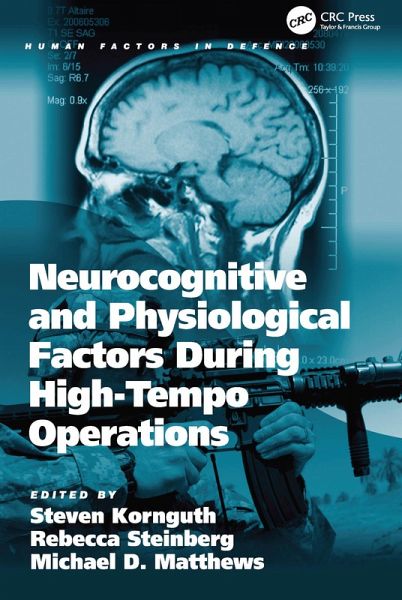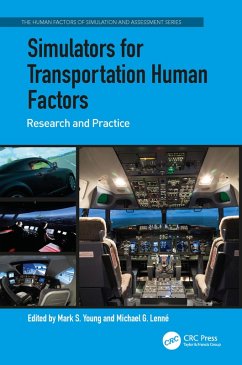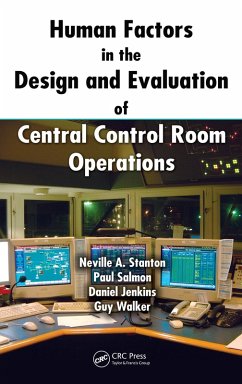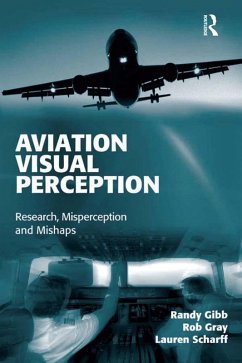
Neurocognitive and Physiological Factors During High-Tempo Operations (eBook, PDF)
Versandkostenfrei!
Sofort per Download lieferbar
55,95 €
inkl. MwSt.
Weitere Ausgaben:

PAYBACK Punkte
28 °P sammeln!
Neurocognitive and Physiological Factors During High-Tempo Operations features world-renowned scientists conducting groundbreaking research into the basic mechanisms of stress effects on the human body and psyche, as well as introducing novel pharmaceutics and equipment that can rescue or improve maximal performance during stress. Its focus is on the military model as an exemplar for high-stress environments, the best for understanding human performance under stress, both in the short-term as well as in the long-term. The unprecedented demands on the modern soldier include constantly shifting ...
Neurocognitive and Physiological Factors During High-Tempo Operations features world-renowned scientists conducting groundbreaking research into the basic mechanisms of stress effects on the human body and psyche, as well as introducing novel pharmaceutics and equipment that can rescue or improve maximal performance during stress. Its focus is on the military model as an exemplar for high-stress environments, the best for understanding human performance under stress, both in the short-term as well as in the long-term. The unprecedented demands on the modern soldier include constantly shifting enemy threat levels and tactics, ambiguous loyalties, rapidly evolving weaponry, and the need to amass, comprehend, retain, and act upon large datasets of information. During high-tempo operations, soldiers must maintain superior cognitive and physical skill levels throughout extended periods of little to no sleep. Furthermore, although a soldier fresh from training may perform at peak skill, the effects of cognitive and physical strain and sleeplessness during deployment can impair his or her ability to transfer instructional knowledge to complex real-life situations. It is necessary to understand how intense workloads, both mental and physical, combine with total sleep deprivation to alter soldier situation awareness, decision-making, and physical abilities. The resulting knowledge can be used to design rapid, deployable fitness-for-duty measures, alter training protocols, and assess training efficacy in order to enable decision-makers to act at peak ability during high operations tempo. In addition, dual-use applications of resulting knowledge and technology extend well into the civilian sector, to law-enforcement officers, healthcare professionals, and emergency responders. The book differs from many previous human factors publications by presenting state-of-the-art neuroscience data in a format that is comprehensible and informative for readers of diverse backgrounds. It not only details human behaviors and perception, but also provides concise brain imagery and physiological findings to support its conclusions. In addition, the incorporation of the US Army soldier model of extreme stress and extreme performance demands provides a real-life theme that anchors the scientific, organizational, assessment and response aspects of each chapter. This book synthesizes hard facts with real-life accounts of performing under stress and shows how a large oversight institution like the US Army can measure and improve human factors considerations for its members.
Dieser Download kann aus rechtlichen Gründen nur mit Rechnungsadresse in A, B, BG, CY, CZ, D, DK, EW, E, FIN, F, GR, HR, H, IRL, I, LT, L, LR, M, NL, PL, P, R, S, SLO, SK ausgeliefert werden.













